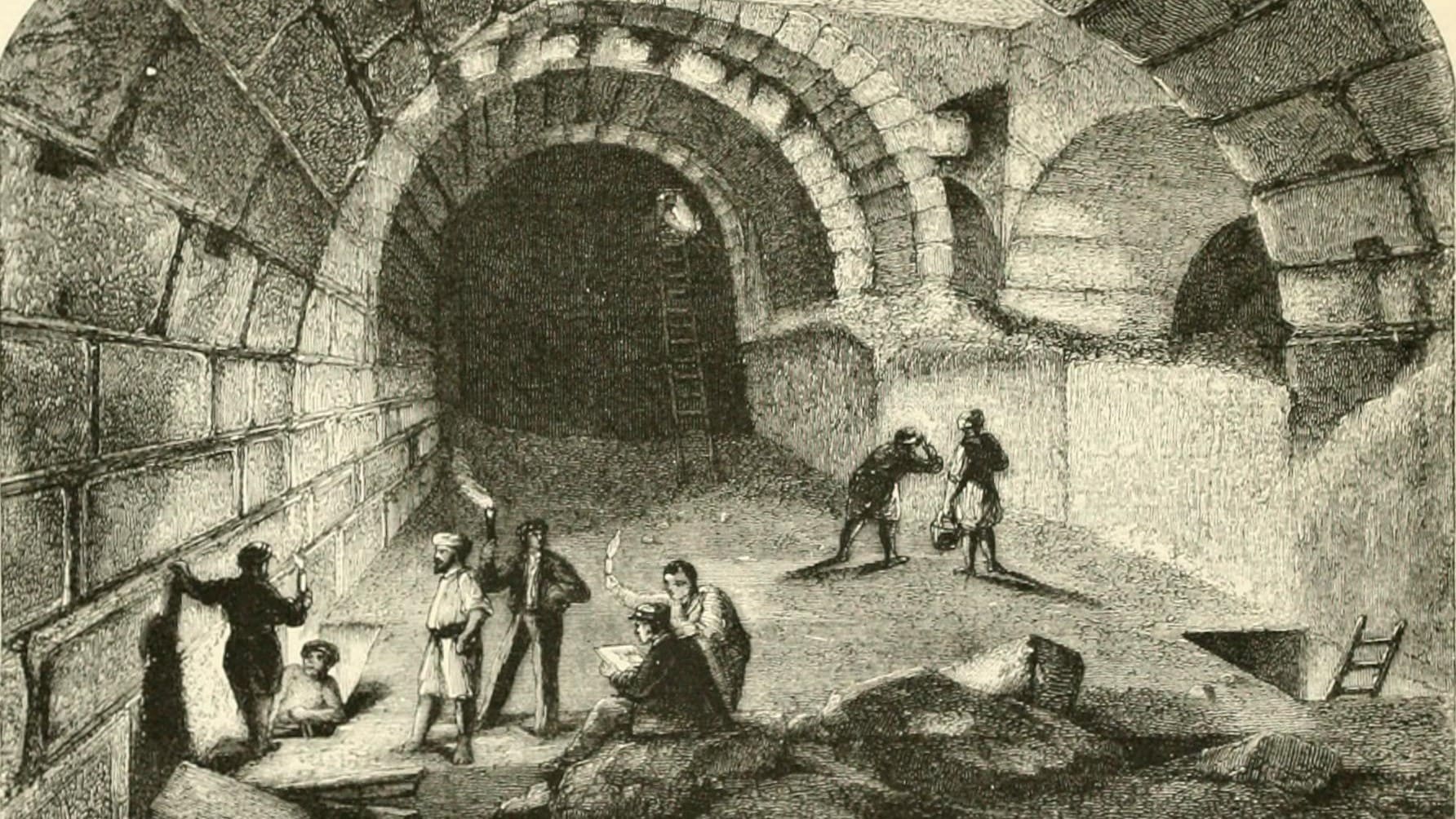Postcolonialism, a school of thought within the humanities, faces public scrutiny. A column in Der Spiegel accuses ‘postcolonial studies’ of ‘intellectually ennobling hatred of Israel.’ The Süddeutsche scoffs: ‘The buzzword ‘post-colonialism’ now justifies solidarity against Israel, with butchers, autocrats and quacks.’ British historian Simon Montefiore argues in The Atlantic that ‘The decolonization discourse is dangerous and false,’ while British Nigerian author Ralph Leonard explains on UnHerd how ‘Hamas apologists have misunderstood Frantz Fanon,’ a foundational theorist in the postcolonial canon.
These criticisms do not come out of the blue, as postcolonialism has shown its ugliest side in recent weeks. Immediately after the Hamas terror attack on 7 October, postcolonial intellectuals bombarded us with petitions and public statements that not only called attention to Palestinian suffering but also
pasted a simplistic colonizer-colonized schema over the complex history of the Israeli–Palestinian conflict,
declaring Israel illegitimate and, by implication, outlawed. Hamas’ terrorist violence, they argued or implied, should be understood as decolonizing resistance. And all that was poured out on us against the backdrop of what is perhaps the worst resurgence of antisemitism in Western Europe since World War II.
Postcolonial Petitions
The Low Countries, where I come from, are among the most heavily hit, with epicentres of postcolonial petitioning in Amsterdam and Ghent. An open letter to the University of Amsterdam community, which came online a week after the attack, was digitally signed by 1,200 University of Amsterdam students. The letter calls for more postcolonial criticism and boycotts of Israel. Its drafters, the doctoral students Connick and El Khannoussi, are disturbed by the supposed ‘deafening silence…of those who label themselves as decolonial theorists alarming.’ Postcolonialism must be much louder and assertive in inserting itself into the Israel–Hamas conflict, they proclaim.
The letter additionally asks the University of Amsterdam to discontinue its master’s programme ‘Holocaust and Genocide Studies’ because ‘it is complicit’ in ‘the unfolding genocide of the Palestinians.’ Quite an allegation. Excuse me, history classes on the Holocaust would be a problem? That absurd suggestion is especially troubling given previous signs of an antisemitism problem in parts of the University of Amsterdam community. Jewish and Israeli students feel intimidated by a ‘strong anti-Israel sentiment and an implicit call for violence,’ university magazine Folia reported—back in July. That was before the Israel-Hamas war was to sink the atmosphere completely. To illustrate how bad things have become, a Jewish family recently fled a graduation ceremony amid abusive anti-Semitic shouts.
But the most ominous is what the letter omits.
Nowhere does it explicitly mention Hamas’ targeted attack on civilians, which occurred a week before publication. Instead, we read, ‘Decolonization is not a metaphor,’ reminiscent of Mao’s once-famous slogan, ‘Revolution is not a dinner party.’ Violence is part of the game, is the suggestion.
The same grim mantra—decolonization is not a metaphor—marred the Department of Conflict Studies statement at Ghent University in Flanders, published three days after the attack and signed by 2,600 international academics, including 327 full professors. But the Ghent statement was a more explicit attempt to legitimize terroristic violence: ‘Statements that now condemn Hamas’ violence exhibit…selective blindness.’ One of the initiators was Professor Koen Bogaert, who specializes in postcolonialism and published a book on Frantz Fanon. On 7 October, mere hours after the massacre at the Nova music festival, he asked in a public Facebook post: ‘Who are we to judge what resistance should look like?’
Dummy Postcolonialism
It’s clear. A certain kind of postcolonialism can lead you to view things in terms of a simplistic dichotomy: in this case, white colonial Israel versus Palestinian resistance. That dichotomous frame filters all the complexity out of the Israeli-Palestinian conflict, such as the religious dimension or the fact that many Jews came to Israel as refugees and not as ‘powerful settlers.’ Once you set up your misleading dichotomy, perverse justifications for violence are close at hand.
Should such mental exercises be tax-funded through the higher education budget? No, but this dummy postcolonialism, besides being unethical, is a betrayal of the school’s critical potential.
Postcolonialism should not be discarded entirely. No, repair it. Make it live up to its critical potential.
What is postcolonialism properly understood? A school of thought that thinks critically and self-critically about the legacies of imperial and colonial power structures, including in the scholar’s own conceptual instruments. You try to self-reflectively include the concepts with which you interpret the world in your power analysis. Why? Because you don’t want to talk over non-Western voices with powerful Western traditions. You want to be able to hear as much of that larger, heterogeneous world as possible.
The Subaltern
These two critical pillars—self-reflective power analysis and the search for non-Western interpretations—are well reflected in ‘Can the Subaltern Speak?’ (1988) by Indian literary scholar Gayatri Spivak. The essay is a classic of postcolonial theory. It notes that marginal groups outside the Western world can be so muted that they do not convey any interpretations. These so-called subalterns have no voice; they are only spoken about. An example is the Indian widows who, well into the nineteenth century, were burned alive at their husband’s funeral as part of the sati ritual. The sati was opined upon by British critics and male Indian traditionalist supporters,
but no sources survive in which we hear from the women who were to undergo it.
In other publications, Spivak discussed female suicide bombers like the one who blew up former Indian Prime Minister Rajiv Gandhi in 1991. What did she—not the militant Tamil organization that trained and used her, but she herself—mean to say by that? Boom, and away she was. ‘Their message will never be heard.’
Subalterns languish quietly, kill themselves, or commit atrocities, but they do not verbalize ideas—or at least not in a frequency picked up by the Western intellectuals and indigenous elites who interpret their behaviour. The subaltern’s subjectivity remains hidden from their objectifying interpretations; it is ‘irretrievably heterogeneous.’ Yet the almost paradoxical task for intellectuals is to keep looking for those irretrievable subaltern subjectivities.
Picking Sides
However, for such philosophical finesse, many who affiliate themselves with postcolonialism have no patience. Instead, they pick sides with the underdog in a national liberation struggle while not distancing themselves from forces that are, in Spivak’s words, ‘reactionary.’ Partly for this reason, Spivak distanced herself from postcolonialism in her later work. She now advocates an ‘archipelagic world-island consciousness’: heterogeneous togetherness without a meaning-grounding mainland.
The Amsterdam letter is one of dogmatic side-picking, which it holds to be the application of the theory. ‘By supporting Palestine you see decoloniality is moving from theorization to practice.’ Young postcolonial theorists at the University of Amsterdam think they know precisely what their underdog wants to say and thus can represent it through an open letter. ‘We, as allies for Palestine, should be the ones taking the burden of educating not only the University community but the wider Amsterdam community about Palestinians.’
Gone is the tragic search for subaltern subjectivities that are voiceless and, therefore, unrepresentable.
In this way, post-colonialists, too, shout dominant Western codes over non- or anti-Western voices. Take the prominent Berkeley University theorist Judith Butler, who in 2006 called on the ‘global left’ to embrace Hamas and Hezbollah as ‘progressive.’ Progressive? If you check Hamas’ charter, you will come across jihadism, The Protocols of the Elders of Zion, and five exhortations to kill Jews. This and more Butler buried under a projected Western progressivism.
The Dark Subaltern
But then, a charter still has a rationalizing character. Hamas is at its most subaltern in its most bizarre acts of violence. Take the murder of German Israeli student Shani Louk, who was kidnapped by Hamas at the Nova dance party and whose body was later paraded naked (with her head covered) through Gaza on the back of a pickup truck. Recently, part of her skull was found. It appears that the kidnappers dismembered her skull somewhere along the way, then dragged her dead body with half her head attached to Gaza. Why in God’s name? What did they mean to say by that?
Mind you, somewhere in there, is communicative intent. After all, these violent men, when committing violence, anticipated on responses by other humans: they perhaps sought to frighten Israeli media consumers and enthuse the parade-attending Gazans who hit and spit on Louk’s corpse. So, their violent acts are ‘communicative’ in the broadest sociological sense, but what is communicated semantically and ideationally? What point did they seek to make? That question cannot be answered because, within the domain of rational discourse, such acts of bizarre violence are literally incomprehensible and, therefore, voiceless. And they will remain so, assuming none of the perpetrators will have the sophistication to ever explain their act persuasively in a future autobiography.
Of course, Western academics, Palestinian politicians, and intellectuals of all stripes can offer rationalizations by placing the attack as a whole in the context of Palestinian political resistance and Middle Eastern history, etcetera, etcetera. Still, in so doing,
they obscure the incomprehensibility of the individual acts of violence,
which, whether taken individually or in sum, lack any logical relationship with the Palestinian cause. These acts did not serve nor tried to serve the freedom of the Palestinian people. They are composed of a different substance than social-scientific models and political plans for society’s betterment. The true motives of Louk’s killers—or her kidnappers, who became killers and ended up publicly desecrating a corpse—lie in a dark practice of violence: in an evil that eludes political or social-scientific rationality.
Power Analysis
This ‘heterogeneity’ of bizarre violence (literally: the otherness of its origin, beyond reason) can be analysed from a postcolonial sensitivity without justifying anything. For this, the school’s critical pillars are instrumental. For one, if you take power analysis seriously, you can never arrive at an apologetic oppressor-oppressor scheme because the complexity of power dynamics easily exceeds such a simplistic dichotomy. Spivak explained in her 1988 essay that the divisions between dominant and dominated groups are ambivalent while power relations fluctuate and are locally situated.
There are no fixed ratios between Jews and Arabs or Israelis and Palestinians. That Palestinian families are trapped as Hamas’ human shields in Gaza and beleaguered by armed Israeli settlers on the West Bank, does not empower individual Jewish students in Europe, who belong to a tiny and once again threatened minority. Besides, one should never see any individual as an extension of ‘the power structure,’ which is anti-humanistic. Powerful is not how Jewish students in Europe feel right now, either, by the way.
Clamping down on antisemitism is a top priority in the Netherlands, my home country, and much of Europe.
Fortunately, Hungary’s government has held the line alongside Germany’s.
Both banned public expressions that legitimize Hamas, even including, controversially, some demonstrations premised on false moral equivalences between targeted military strikes and terroristic violence, such as the demonstration initially planned for 13 October in Budapest. With antisemitism waving through European societies and the emotionally manipulative propaganda of the West’s Islamist enemies pouring into Western mainstream media, it might be better to err on the side of public order and the beleaguered Jewish state, though how tolerant one ought to be toward anti-Semitic intolerance leads into complex political-philosophical questions.
One thing is clear, though: it is ethically good to reject antisemitism and terror apologetics. Such basic uprightness does not conflict with critical reflections on a heterogeneous, power-unequal world—because genuine critical thinking has never caused anyone to become an anti-Semite or a terror apologist.








